 60 DAY warranty on all custom-made products | 1,000+ 5 Star ★★★★★ Reviews
60 DAY warranty on all custom-made products | 1,000+ 5 Star ★★★★★ Reviews 60 DAY warranty on all custom-made products | 1,000+ 5 Star ★★★★★ Reviews
60 DAY warranty on all custom-made products | 1,000+ 5 Star ★★★★★ Reviews
With advancements in denture technology, you might be considering whether metal-free partials are the right choice for you. When choosing dentures, factors such as cost, durability, and adaptability to changes in your mouth should be taken into account. The best option varies for each individual, depending on their current needs and future expectations.
Since dentures are worn daily, comfort and practicality are important considerations. Various materials, including acrylic, flexible resin, and metal alloys, are available, and finding the most suitable one for your needs can be a bit overwhelming.
Let’s explore the options to help you make an informed decision that aligns with your lifestyle and preferences.
Partial dentures that include metal use the material as a means of connecting with teeth that remain in the mouth. They typically feature at least two clasps that securely grip onto the existing teeth, with the possibility of minor connectors for added support.
Because they already have firmer connections to the teeth, metal partial dentures tend to be smaller in length, height, and thickness. The clasps may also be visible – while they look similar to existing teeth, this may be an aesthetic drawback.
Metal partials are also significantly more expensive than their acrylic or plastic counterparts—anywhere between 25% and 75%. Additionally, they are hard to change, so more lost teeth can only increase their cost.
Metal-free partial dentures are typically made of acrylic or plastic. Because they don’t include metal clasps, they tend to be slightly larger than metal partials. However, advances in denture technology have made them equal in comfort to metal dentures.
One of the biggest advantages of metal-free partial dentures is their cost. They are significantly less expensive than metal partials, making them much more accessible to the vast majority of people requiring them. This also makes them a better fit for people who might lose more teeth down the line – they are easier to replace.
Because metal-free partials are not held as firmly in place, an accurate impression must be made. Failing to do so can result in sore spots and gum damage around the teeth. Because of the material they are made of, they are also somewhat more prone to damage and require more cleaning.
Aesthetic appeal: made from materials that closely resemble the natural color and appearance of gums and teeth
Comfortable: typically lightweight, making them more comfortable to wear
Short adjustment period: the flexibility and lightweight nature of these dentures can result in a shorter adjustment period
Durable: materials used in metal-free partial dentures are still robust and can withstand the forces of chewing and speaking well
Risk of breaks: susceptible to fractures or breakage compared to rigid metal frameworks
Not Suitable for All Cases: not for situations where greater stability or support is required
Cost: can sometimes be more expensive than traditional metal-based dentures
So, which is the better choice: metal partial dentures or acrylic partial dentures? While metal partials have historically had a significantly better fit than acrylic partials, advances have made the difference between the two virtually indistinguishable.
Three considerations to make include:
With Dental Lab Direct, ordering flexible, metal-free partial dentures is hassle-free and as simple as one, two, or three. We offer customized, flexible dentures at affordable prices. Our appliances are professionally crafted using FDA-approved materials that are safe for you and your family.
Here at Dental Lab Direct, we aim to keep things user-friendly and stress-free. When you complete our three-step ordering process, you save a trip to the dentist’s office and will receive your custom appliance in just a few weeks.
Interested in improving your smile? Get started today.

Satisfaction is our goal. If for any reason you aren't happy with your custom-made DLD appliance, just contact us and we'll make sure you are.
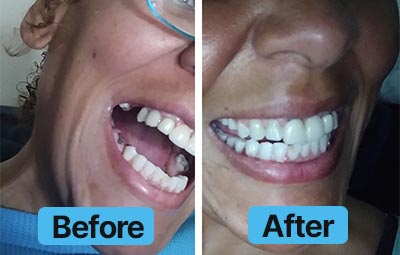
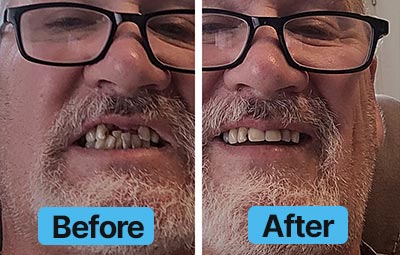
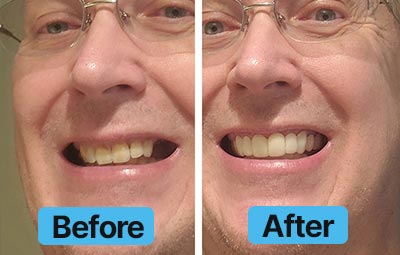
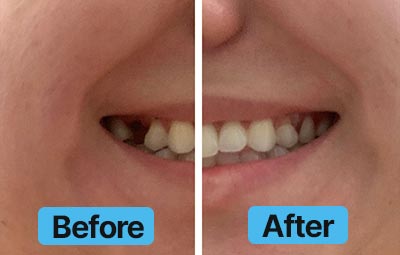
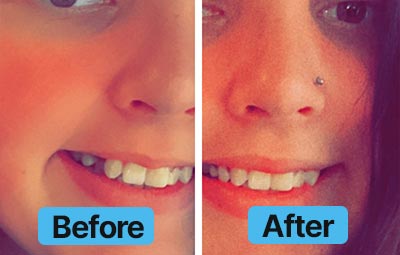
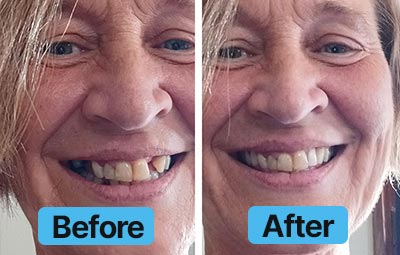
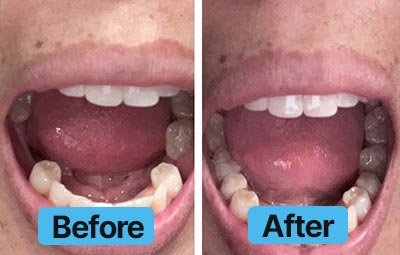
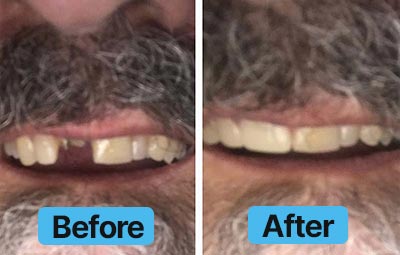
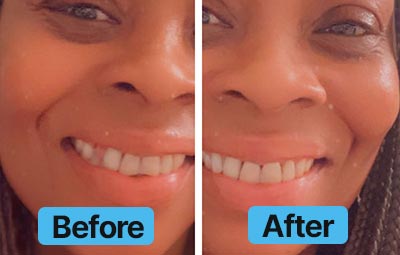
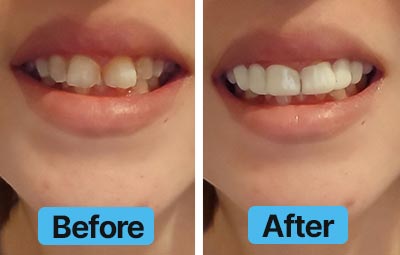
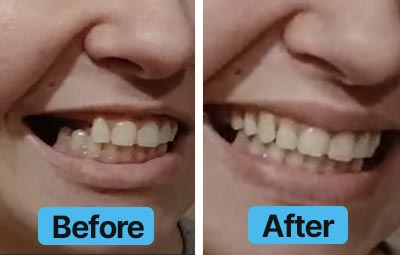
Easy to get imprints
My Bellaveneers are absolutely fantastic! It's been a long time since I have been able to smile with confidence. I have received a lot of compliments on them, and I absolutely love them. My only complaint would be that I do wish that someone in customer service would answer the phone when I call rather than having to wait a day or two for a response.
So far so good. Have not received product yet.
Fits amazing and looks. Dry natural
I was absolutely blown away by the quality of this product. I am always embarrassed about a missing tooth after an injury. Because my job requires a very professional appearance, I’m always very self-conscious. The kit was easy to use, and within three weeks I had the most perfect bridge. No rough edges, fit perfectly, no impact on my speaking, eating or drinking. The coloration is so amazing that even close-up you cannot tell. I would recommend this company in this product in a heartbeat to anyone interested in improving your smile and their self-confidence.
Perfect 1 replacement tooth. I was self-conscious of 1 missing tooth and when I got this tooth, it slid comfortably right into place. This lab did an excellent job with my impressions done at home!!
the best experience, the best team, very impress with the product thanks Dental Lab Direct
Easy purchase via website and prompt delivery.
I wished I had known about this before I paid out all that money for the upper denture. They fit perfectly!
Got my nesbit flexible partial today and I am blown away..the quality and attention to detail could not be better
I never had heard of Bellaveneers until I found these…and boy am I glad I did! Painless to pull in and out, I forget I'm wearing them most of the time.
My tooth-grinding at night has pretty much gone away now. My wife thanks you ;)
I already told all my family about this!
I needed a slight adjustment and after that they fit perfect!
My brother ordered his retainers from this company so I gave them a try. We are both so happy.
The pink acrylic matched perfect with my gums.